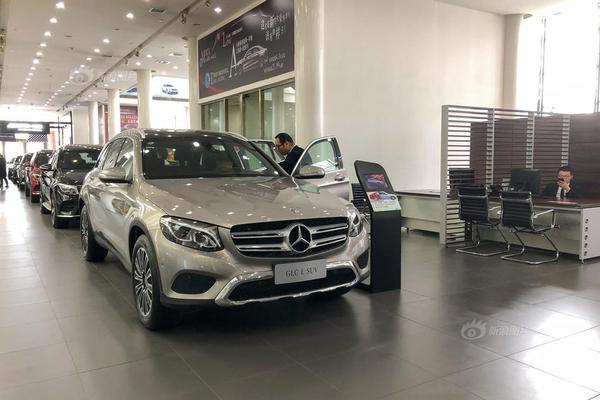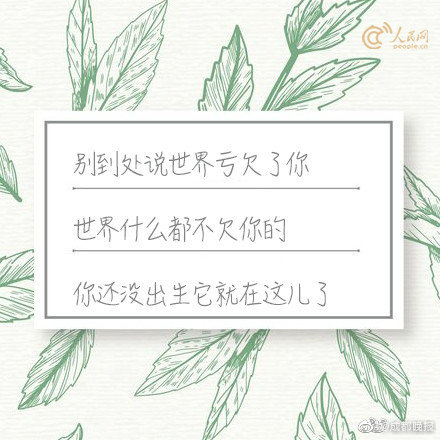Is Google making a big mistake014 Archives
The company is swapping its "mobile first" strategy for an "AI first" one, and it did so in such a public way. It's a bold move and probably necessary for a software company that wants to drive millions of hardware sales on the back of its Google Assistant.
Going forward, Google’s equation for new products appears to be something like this: “AI + software + hardware.” That implies that the base ingredient for the brand new Pixel 2 phones, Google Home Mini, Google Home Max, Google Pixel Buds, and that somewhat concerning Google Clips camera is artificial intelligence.
SEE ALSO: Google announces Pixel 2 and Pixel XL 2, its cheaper, squeezable alternatives to iPhoneConsumers who have not exactly embraced the original Google Pixel phones may scratch their heads at the idea that mobile is a second-class citizen to artificial intelligence, something they barely understand and may, rightly or not, fear.
This Tweet is currently unavailable. It might be loading or has been removed.
Google isn't wrong. AI is the most important development in the consumer technology universe. It will drive hardware and software innovation across virtually every industry you can imagine. Most companies I talk to are either thinking about it or aggressively implementing it. AI and machine learning is at the core of Apple’s powerful A11 Fusion CPU inside the iPhone 8, iPhone 8 Plus and iPhone X.
None of these companies, though, is putting AI ahead of the consumer electronics message. Google won’t be any different. Even with Wednesday’s hard AI push, it’s unlikely Google will use that phrase, “AI First” in its hardware commercials.
For consumers, the common thread across all of Google’s products is Google Assistant. It’s the key to a potential world of ambient computing, where your home becomes an ever watchful, listening environment, ready to respond to requests or take autonomous actions based on input from Google’s growing network of smart, connected, Google Assistant-enabled devices.
For this Google Assistant ecosystem strategy to work, for Google to sell you several devices, it must convince consumers that they want to use Google Assistant — and that may be a problem.
If you think of a company’s product strategy as a wheel with a product at the hub and ancillary offerings on the spokes, you begin to see Google’s challenge.
For Apple, the hub is the iPhone. It’s the shiny object at the center that consumers buy almost regardless of price and frustrating feature changes. It generates sales in accessories like the AirPod, Apple watch and even Apple TV, and services like iCloud storage, Apple Music and Apple’s video content.
 Original image has been replaced. Credit: Mashable
Original image has been replaced. Credit: Mashable Some might argue that Google wants to make Google Home the hub, with spokes leading to the Google Home Max, Google Home Mini and Google Pixel 2. While Google Home’s 23 percent home assistant market share pales in comparison to Amazon Echo’s 70 percent, at least Google has a footprint. Still, to work as a hub product, it needs to be ubiquitous and since it’s stuck at home, that’s impossible. Apple’s iPhone is always with you.
Google Pixel (and the upcoming Pixel 2) should be Google’s hub product, but, despite strong reviews, the Pixel has, according to comScore, just 0.7 percent of the smartphone market. You can’t build a hub around that, which is why Google is relying on Google Assistant. Software and intelligence is portable and can live in every single Google hardware product, providing a level of ubiquity that could take years for Google to build with hardware.
Google Assistant will be in the Home devices, the all new Pixel 2s and Google Pixelbook. It is the intelligence tying together disparate Google and Nest hardware (Google owns Nest). I was especially impressed with how Nest Hello, the connected, camera-enabled doorbell, could work with Google Chromecast and Google Home to respond to the query, “Show me who’s at the front door,” with a live video feed on the HDTV connected to Google Chrome.
But when it comes to the intelligence behind, for example, the real-time translation capabilities possible with Google’s Pixel Bud Bluetooth headphones, it’s Google Translate. And when Google Clips camera watches you, your family and your pets in the home and decides when to capture photos and videos, it’s Google’s powerful AI at work.
The cohesion that Google seeks simply breaks down, leaving no single compelling reason to buy one or more of Google’s hardware products.
If anything has the potential to draw more consumers to the Made by Google family, it's Google Photos. Google's cloud-based free media-storage system runs on any platform and skillfully saves and organizes high-resolution photos and video (not full) from mobile and fixed devices. People care more about their photos and video than almost everything else. Anything Google can do to strengthen the magnetism of that offering could help them in this hardware domination quest.
Unfortunately for Google, most people still use the cloud-based backup that comes with their respective devices. No one loves iCloud, but it has all of our media.
This all could change if Google Home takes an Amazon Echo like trajectory or the world tilts on its axis and Google sells 60 million Google Pixel 2 smartphones next quarter. If any of that happens, those devices will shift to the center of Google’s ever-expanding hardware wheel and it will finally start to roll.
Topics Artificial Intelligence Google Google Assistant Google Home Innovations
Previous:Never Get Off The Boat
Next:Fighting Words
 The Invention of a Master Terrorist
The Invention of a Master Terrorist
 Uber's vending machines didn’t work, so now cars are moving billboards
Uber's vending machines didn’t work, so now cars are moving billboards
 Radiohead launches online 'public library' so you can stream their rare stuff
Radiohead launches online 'public library' so you can stream their rare stuff
 Patrick Stewart is being compared to Kellyanne Conway and he couldn't be happier
Patrick Stewart is being compared to Kellyanne Conway and he couldn't be happier
 We’re Living in “The Thick of It”
We’re Living in “The Thick of It”
 Everything coming to Amazon Prime Video in February 2020
Everything coming to Amazon Prime Video in February 2020
 Everything coming to Hulu in February 2020
Everything coming to Hulu in February 2020
 Starbucks unveils new sustainability goals, including plans for more plant
Starbucks unveils new sustainability goals, including plans for more plant
 Who’s Afraid of Ocasio-Cortez?
Who’s Afraid of Ocasio-Cortez?
 Commuters think this super weird Tube ad is 'demeaning' to women
Commuters think this super weird Tube ad is 'demeaning' to women
 Camping Trip
Camping Trip
 Today, in Bad News for Uber: Denmark kicks Uber to the curb
Today, in Bad News for Uber: Denmark kicks Uber to the curb
 Huawei's Google Maps alternative is TomTom
Huawei's Google Maps alternative is TomTom
 Apple is testing a way to completely turn off location tracking in iOS
Apple is testing a way to completely turn off location tracking in iOS
 The Coronation of Macron
The Coronation of Macron
 Uber's vending machines didn’t work, so now cars are moving billboards
Uber's vending machines didn’t work, so now cars are moving billboards
 Deepfake technology is evolving, but can the internet keep up?
Deepfake technology is evolving, but can the internet keep up?
 Michelle Obama's workout playlist has Beyoncé, Lizzo, and Ed Sheeran
Michelle Obama's workout playlist has Beyoncé, Lizzo, and Ed Sheeran
 The Usual Suspects
The Usual Suspects
 Dating app figures out what we all hate about sex
Dating app figures out what we all hate about sex
This campaign wants UK politicians to wake up to the dangers of the gender data gapCute electric cars at the Geneva Motor ShowNikolaj CosterTwitter says it will publish 'case studies' on banned accountsYouTube starts to factWelcome to New York, Taylor Swift exhibit. It's been waiting for you.Star Wars: Galaxy's Edge at Disney theme parks announce opening datesCustody dispute? A judge can order you and your ex to use this appThe one thing you need to do to stop your home devices from getting hackedTrump didn't quite get the memo on charity dinner with Hillary ClintonDonald Trump is the biggest roadblock to new net neutrality billHuawei announces it will sue the U.S. governmentReport: Apple AR glasses might launch in 2020 as an iPhone accessoryFoursquare introduces experimental 'Hypertrending' feature for SXSWChance the Rapper's story of how he met his fiancée is the most romantic thingSamsung to build two more foldable phones, report saysWelcome to New York, Taylor Swift exhibit. It's been waiting for you.Duterte hating on the U.S. has inspired a Spam meme in the Philippines15 Hulu tips for streaming TV fansRoku devices now play nice with Amazon Alexa How disability rights activists are fighting the GOP health care bill Kittenfishing is the newest online dating trend iPhone 2020 roundtable: Dissecting the future of Apple's 'one device' Facebook News Feed change cracks down on spam and fake news 'Sense8' creator announces 2 New Yorker cartoon brilliantly trolls Trump for his fake Time cover The 15 best Fourth of July foods, ranked Damnit, Chance Notorious B.I.G.'s mom accuses Kendall and Kylie of cultural appropriation after T Oreo is taking (and making) flavor suggestions, including avocado The special meaning behind Tim Cook's iPhone 10th anniversary tweet Emilia Clarke has the most badass names for her 4 'Game of Thrones' wigs 10 years of people destroying their iPhones in very dumb ways NASA has better things to do than address Mars conspiracy theories Die hard Miami fan displays romance by getting married wearing Dolphins helmet An NBA star shared his phone number with the world and boy did fans have fun with it Ransomware has been around for almost 30 years, so why does it feel like it's getting worse? Sick of nightmarish flight neighbors? This airline lets you bid on the seats near you Future iPhones won't have a charging port Lenovo made a camera specifically for YouTube's VR180 format
2.7108s , 10138.640625 kb
Copyright © 2025 Powered by 【2014 Archives】,Exquisite Information Network